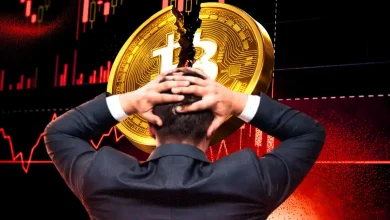
FTX withdraws plan to block $800M in repayments to users from 49 countries after backlash, restoring hope for fair creditor compensation.
Amid bankruptcy proceedings, FTX scraps its “Restricted Jurisdiction” plan as global users protest; China-based claimants led major objections.
FTX, the crypto exchange that collapsed in 2022, has withdrawn a controversial proposal that could have prevented thousands of users from receiving their money back. The plan was part of the exchange’s ongoing bankruptcy proceedings and would have allowed FTX to deny repayments to creditors in certain countries if local regulations made the process “too difficult.” Following heavy backlash from users—particularly those in China—FTX decided to retract the proposal.
What FTX Planned to Do
As part of its Chapter 11 case, FTX submitted a proposal called the “Restricted Jurisdiction Procedure.” This procedure would have allowed the exchange to label certain countries as “restricted” and block users from receiving their repayments. The affected regions included China, Russia, Ukraine, Pakistan, Saudi Arabia, and 44 others—49 jurisdictions in total.
The financial implications were significant. The move would have excluded roughly $800 million worth of claims, representing about 5% of the total repayment amount FTX expects to distribute. China alone accounted for 82% of the affected funds, meaning most of the blocked users would have been Chinese.
FTX had planned to hire legal teams in each country to determine whether repayment was legally feasible. If lawyers concluded that compliance was too complex, FTX could cancel the claim and redistribute the funds to other creditors. Affected users would have had just 45 days to contest the decision—otherwise, their funds could be forfeited.
Why Creditors Were Outraged
Creditors, especially those in China, immediately pushed back. More than 300 Chinese claimants filed an objection in court, arguing that FTX had no valid justification for treating certain countries differently. They described the proposal as unfair and discriminatory, claiming it could deprive users of their money simply because of where they live.
The objection was led by a creditor named Weiwei Ji, who said the plan violated basic principles of fairness in bankruptcy cases. Instead of helping users recover their funds, he argued, FTX was exploiting legal technicalities to reduce its liabilities.
- Also Read :
- “FTX Was Never Bankrupt,” Claims Sam Bankman-Fried
- ,
Sam Bankman-Fried Back in the Spotlight
The controversy emerged just as former CEO Sam Bankman-Fried prepared to appeal his conviction in U.S. court. In a recent written statement, Bankman-Fried insisted that FTX was never insolvent and always had sufficient assets to repay customers. He described the collapse as a “liquidity crisis,” blaming user panic and mismanagement by the bankruptcy team rather than insolvency.
FTX’s sudden reversal on its repayment exclusion plan adds yet another twist to the complex unwinding of one of crypto’s biggest collapses. For creditors who have waited nearly two years, the decision revives hope that repayments will ultimately be distributed based on fairness—not geography.
Never Miss a Beat in the Crypto World!
Stay ahead with breaking news, expert analysis, and real-time updates on the latest trends in Bitcoin, altcoins, DeFi, NFTs, and more.
FAQs
It was a plan to block repayments to users in 49 countries where legal issues made refunds “too difficult,” affecting around $800 million in claims.
FTX faced strong backlash from global creditors, especially in China, who argued the plan was unfair and discriminatory toward certain users.
About $800 million in claims were at risk, roughly 5% of FTX’s total repayment pool, with Chinese creditors making up most of the affected users.
Trust with CoinPedia:
CoinPedia has been delivering accurate and timely cryptocurrency and blockchain updates since 2017. All content is created by our expert panel of analysts and journalists, following strict Editorial Guidelines based on E-E-A-T (Experience, Expertise, Authoritativeness, Trustworthiness). Every article is fact-checked against reputable sources to ensure accuracy, transparency, and reliability. Our review policy guarantees unbiased evaluations when recommending exchanges, platforms, or tools. We strive to provide timely updates about everything crypto & blockchain, right from startups to industry majors.
Investment Disclaimer:
All opinions and insights shared represent the author's own views on current market conditions. Please do your own research before making investment decisions. Neither the writer nor the publication assumes responsibility for your financial choices.
Sponsored and Advertisements:
Sponsored content and affiliate links may appear on our site. Advertisements are marked clearly, and our editorial content remains entirely independent from our ad partners.







